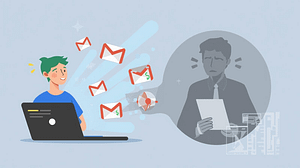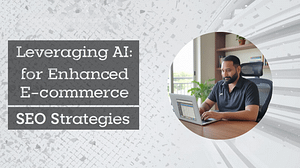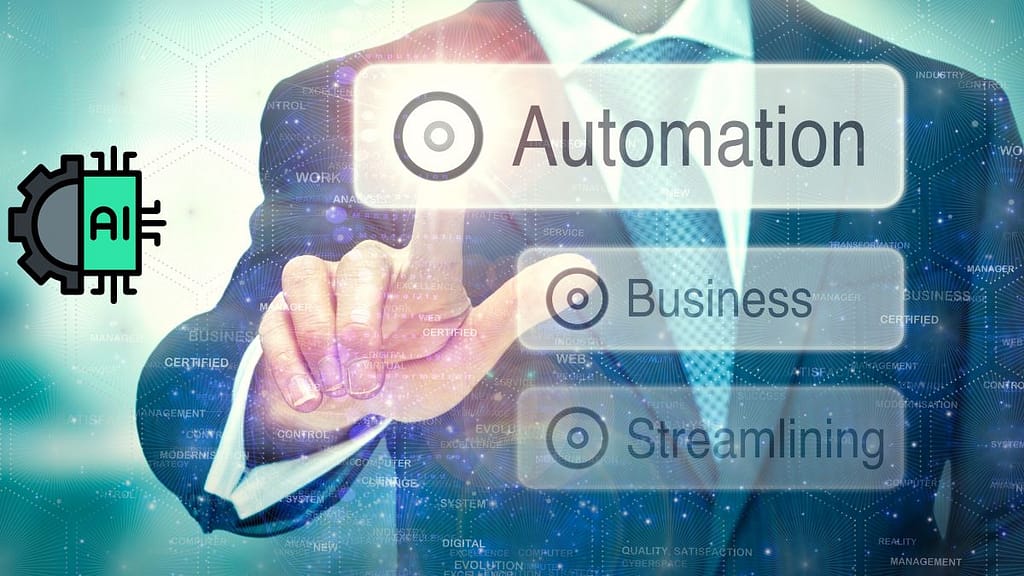AI marketing automation | Marketing Personalization | Predictive Analytics | Marketing Automation Trends
Table of Contents
In 2025, the fusion of artificial intelligence (AI) and marketing automation is not just a trend—it’s a proven revenue driver and a strategic necessity. Companies leveraging AI marketing automation are seeing unprecedented returns, with statistics showing an average ROI of $5.44 for every $1 spent.
As AI becomes more accessible and sophisticated, its impact on marketing efficiency, personalization, and revenue growth is transforming how brands engage customers and scale their businesses.
Why AI Marketing Automation Matters
The numbers speak for themselves:
- 76% of companies see ROI from marketing automation within a year, and 12% see it in less than a month.
- AI-powered personalization can lower customer acquisition costs by up to 50% and increase marketing ROI by 10–30%.
- Businesses using automation enjoy 25% higher revenue and a 25% increase in marketing ROI.
These gains are possible because AI-driven marketing automation streamlines workflows, eliminates repetitive manual tasks, and enables real-time, data-driven decisions that maximize every marketing dollar.
How AI Transforms Marketing Automation
1. Hyper-Personalization at Scale
AI marketing automation analyses massive datasets in real time, enabling marketers to deliver personalized experiences to millions—without creating individual campaigns for each segment.
Example: AI can segment your audience into micro-groups and tailor content, product recommendations, and offers to each, driving higher engagement and conversion rates.
2. Smarter Targeting and Predictive Analytics
AI algorithms identify patterns in customer behaviour, purchase history, and engagement, allowing marketers to predict future actions and optimize campaigns accordingly.
- Predictive analytics helps forecast which leads are most likely to convert, when customers are ready to buy, and which channels will be most effective.
- This data-driven targeting reduces wasted spend and increases ROI.
3. Campaign Optimization in Real Time
AI-powered tools monitor campaign performance 24/7, automatically adjusting bids, creative, and targeting to maximize results.
Continuous optimization ensures that every ad dollar is spent where it will have the highest impact, from email subject lines to ad placements and timing.
4. Productivity and Efficiency Gains
By automating repetitive tasks—like customer segmentation, lead scoring, and performance analysis—AI frees marketers to focus on strategy and creativity.
Over 70% of marketers say they waste time manually pulling and analysing data; AI eliminates this bottleneck, delivering insights instantly.
5. Deeper Insights and Data-Driven Decisions
AI marketing automation tools synthesize data from across channels, surfacing actionable insights and trends.
Marketers can quickly identify what’s working, spot new opportunities, and make informed decisions to improve performance.
Key Use Cases & Trends for 2025
- AI-Driven Content Creation: Machine learning models generate personalized emails, ad copy, and product descriptions at scale, boosting engagement and freeing creative teams for high-impact work.
- Omnichannel Automation: AI ensures consistent messaging and seamless experiences across email, SMS, social, and web, optimizing each touchpoint for conversion.
- Mobile Marketing Automation: With over 70% of the world connected via mobile, AI optimizes content and campaigns for mobile-first audiences, leveraging push notifications, SMS, and in-app ads for real-time engagement.
- AI Chatbots and Virtual Assistants: These tools provide instant, personalized support, improving customer satisfaction and increasing conversion rates.
- Continuous Learning: AI systems learn from every interaction, constantly refining targeting, messaging, and timing for ever-better results.
Competitive Advantage: Why Adopt AI Marketing Automation Now?
Companies that integrate AI into their marketing automation gain a significant edge:
- Faster revenue growth and cost savings.
- Higher customer engagement and retention
- Ability to scale personalized experiences without scaling costs
- Real-time responsiveness to market changes and customer needs
As more businesses adopt AI, those that lag behind risk losing market share to more agile, data-driven competitors.
Best Practices for Implementing AI Marketing Automation
- Start with Clear Goals: Define what ROI means for your business—whether it’s lead generation, sales, or customer retention.
- Leverage Data: Integrate data sources across your marketing stack to fuel AI algorithms with comprehensive, high-quality information.
- Test and Optimize: Use A/B testing and continuous optimization to refine campaigns and maximize results.
- Invest in Skills: Upskill your team in AI and data analytics to fully leverage the technology’s potential.
- Monitor and Adapt: Regularly review performance metrics and adjust your strategy as AI insights evolve.
AI-driven marketing automation is revolutionizing how brands connect with customers and drive ROI. By automating the complex, delivering hyper-personalized experiences, and enabling smarter, faster decisions, AI empowers marketers to achieve more with less.
In 2025 and beyond, embracing AI in your marketing automation strategy isn’t just a competitive advantage—it’s a necessity for sustainable growth.
Ready to boost your ROI with AI marketing automation? Start by integrating AI tools into your workflow, focus on data-driven personalization, and watch your marketing efficiency and revenue soar.







